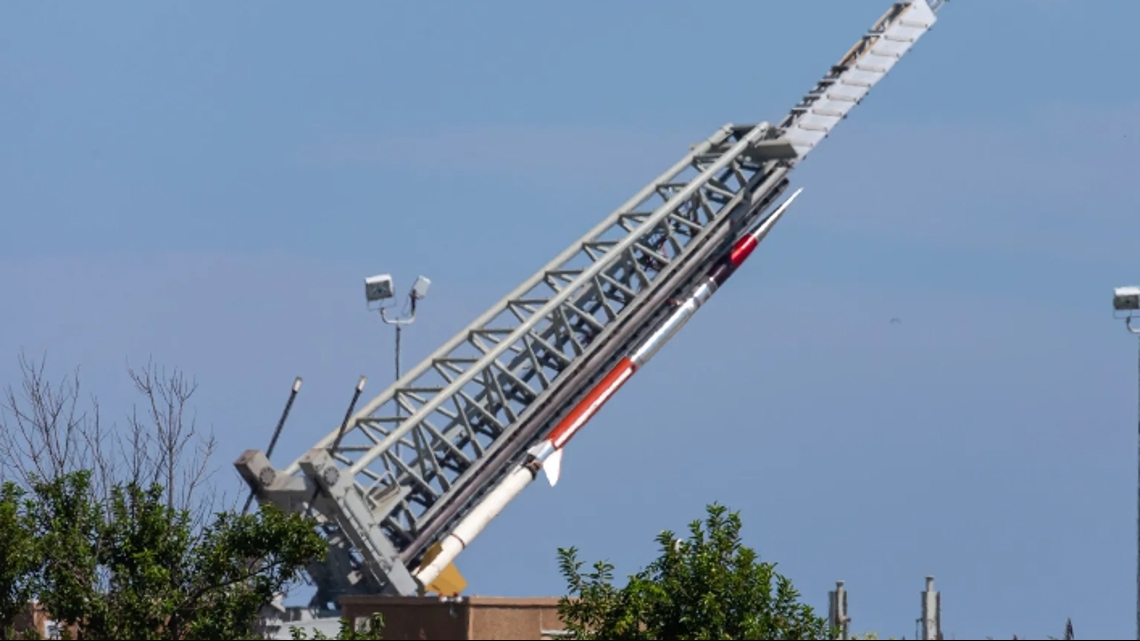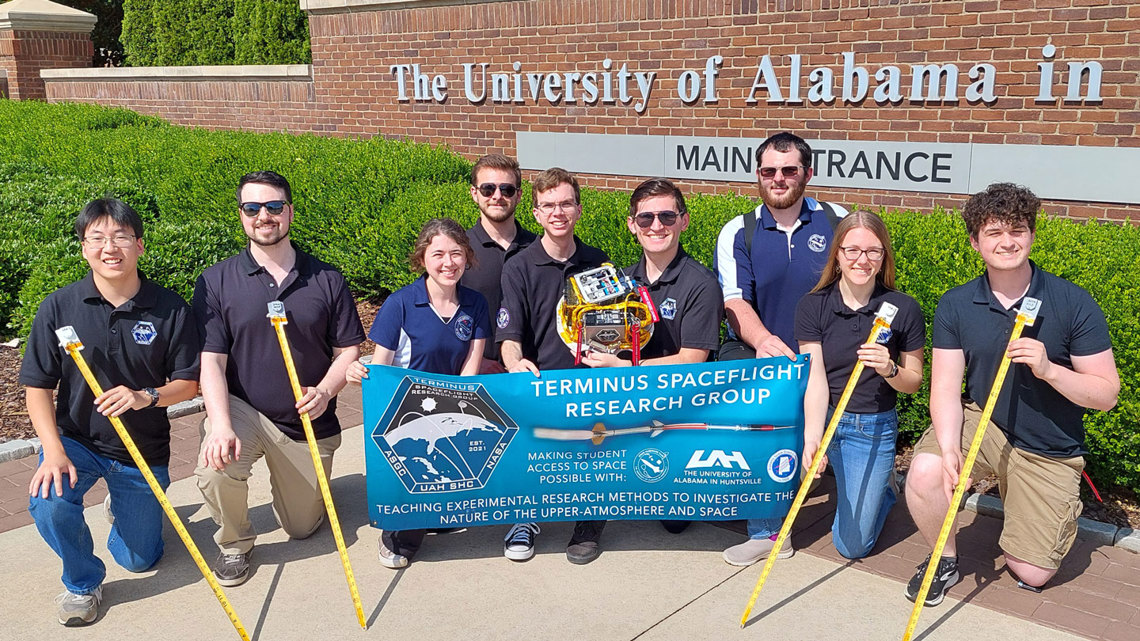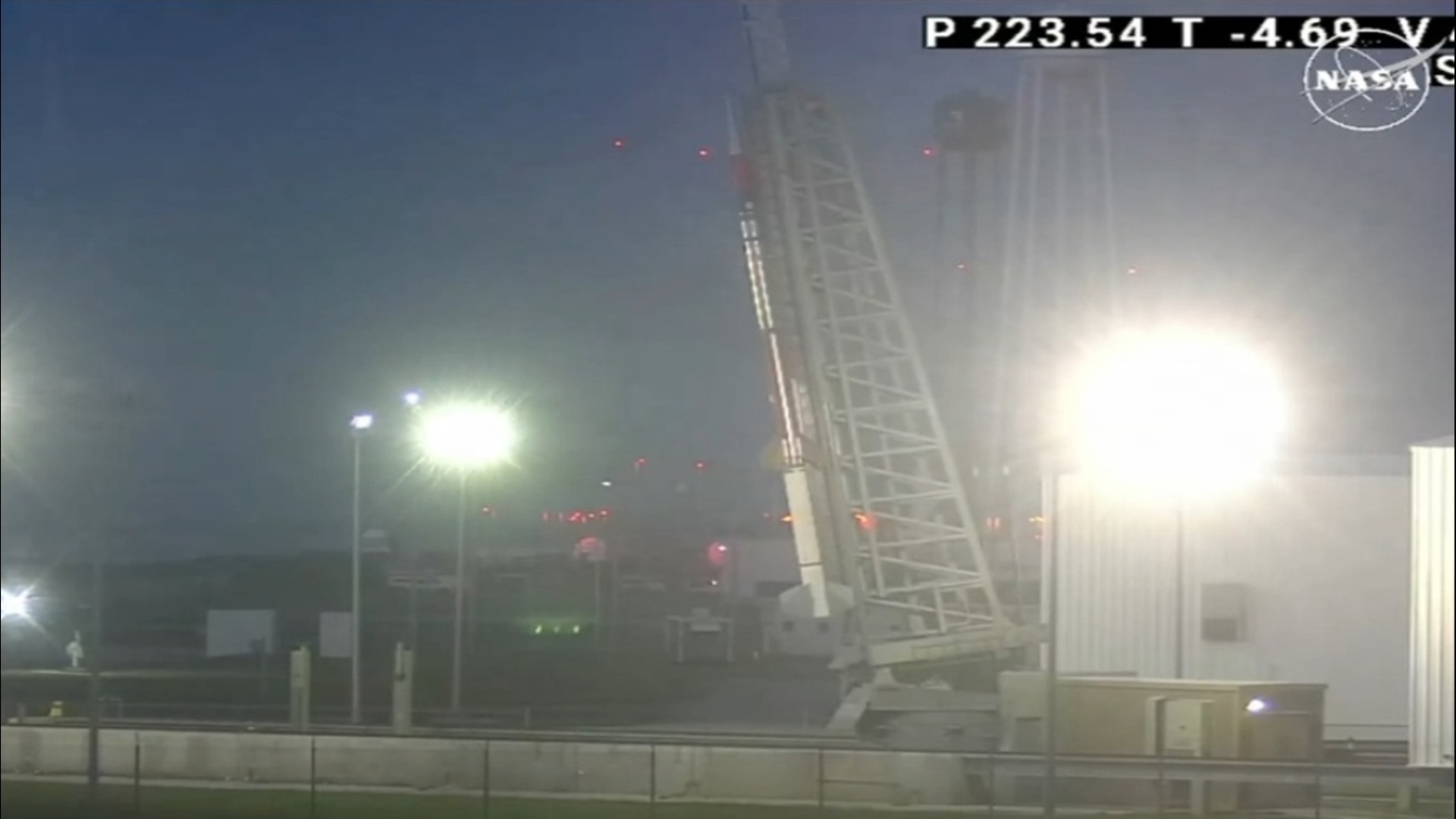WALLOPS ISLAND, Va. — A successful rocket launch in Virginia early Tuesday carried projects from nine college-affiliated organizations, including two experiments designed by the University of Alabama in Huntsville Space Hardware Club.
NASA's RockSat program was initiated to encourage student-designed experiments like those carried on the RockSat-X mission. Liftoff happened about 6 a.m. at Wallops Island, Va.
A Terrier-Improved Malemute rocket soared to an altitude of about 100 miles before descending by parachute into the Atlantic Ocean to be recovered.


On board: a pair of experiments associated with UAH. "JUPITER" is described as "a custom spacecraft bus-like system that connects experiment hardware with existing launch vehicle electronics," while "SwingSat" is meant to "increase the technology readiness level of momentum exchange tether technology in the context of satellite constellation deployments."
The projects were designed by the UAH TERMINUS Spaceflight Research Group (TSRG), which is a subset of the Space Hardware Club founded in 2021. The university said about 90 students are associated in some way with the project.


“We had to design all this hardware so it can be fully exposed to space and have to deal with thermal effects," TSRG founder Ben Campbell said. "In the end it splashes down in the ocean, so you have to make it waterproof too.
"Hopefully it will still survive so that you don’t get water seeping in to mess with the electronics."
RockSat-X is the third and most ambitious of three RockSat missions. The first, dubbed "RockOn," launched in June 2022.
“RockSat-X is the biggest,” Campbell said of the most recent launch. “You choose your own experiments, and it’s fully up to the group to decide whatever it wants to make for a spacecraft.
"We had people come up with a variety of different ideas at UAH and put them to a vote.”
Other universities and groups associated with RockSat-X are from the University of Alberta, Clemson University, the College of the Canyons, the Community Colleges of Colorado, Northwest Nazarene University, the University of Puerto Rico, Virginia Tech, and the West Virginia Space Collaboration, which consists of five West Virginia universities.

